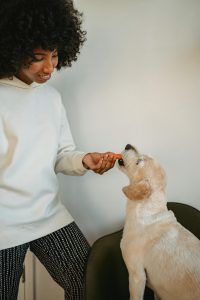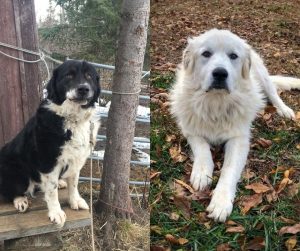It is quite frustrating, to say the least, when your dog suddenly chooses to ignore you. Your pet may be exhibiting such behavior as refusal to come when called, avoiding eye contact, or giving cold signals. You are not alone if you wonder, “What goes wrong?”.
In case dogs communicate differently from humans. When they ignore us, it may just be a small reason that turns out to be the start of a deeper problem. Your dog’s physical, emotional, and environmental changes might lead to this issue. Therefore, the reasons will be examined below as well as how to provide practical support to your dog to bring back the human-animal bond.
They’re Feeling Stressed or Confused
Dogs are creatures of habit. However, they may experience too much anxiety while walking or too much confusion when something in their routine takes an unexpected turn.
They might be afraid of the following stress causes:
- Loud noises (like fireworks or construction)
- Changes in the household (like a baby or a guest)
- Separation anxiety from being alone more often
Stress doesn’t always look dramatic in dogs. Sometimes, it just shows up as avoidance.
Health Issues Could Be the Cause
If your dog suddenly ignores you or seems less responsive than usual, there may be a medical reason. Health problems, especially in older dogs, can make them act distant.
Look out for:
- Hearing loss (they may not hear you call)
- Joint pain or arthritis (they may not want to move)
- Dental pain or stomach upset
- Cognitive decline in senior dogs (similar to dementia in humans)
When you’re not sure, visiting a vet is the first action that comes to mind. A positive test result can be important for your pet’s life.
Vet and Tech frequently notice the impact of slight alterations in dog behavior on pet health and give pet owners and veterinarians the support needed through education.
You May Be Unintentionally Sending the Wrong Signals
Sometimes, dogs ignore us not out of defiance but out of confusion. Have you recently raised your voice? Scolded them for chewing something? Or maybe overused their name without following it up with something positive?
Here’s what might be happening:
- They associate your tone with negative outcomes
- They’ve learned that coming when called doesn’t lead to anything rewarding
- They’re unsure what you want
Rebuilding your bond with your dog takes patience and care. Spend quiet time together, revisit basic training with rewards, and stick to routines to help them feel secure. If your dog’s behavior changes suddenly, consult your vet. Those in Veterinary Jobs know early detection and open communication are key to keeping pets happy and healthy.
Your Dog Might Just Be Distracted
Not every case is serious. Dogs are easily distracted, especially in stimulating environments. If you’re at the park or there are other animals nearby, their focus may simply shift.
Tips to regain attention:
- Use treats or toys as motivation
- Practice commands in quiet settings first
- Keep sessions short and fun
Understanding everyday dog behavior helps you spot the difference between a distracted pup and one who might be struggling.
Your Dog Is Aging — And That’s Okay
Older dogs naturally slow down. They may not be as responsive, social, or playful as before. This is usually normal aging, not personal rejection.
Signs of age-related changes:
- Delayed reactions or lack of interest
- More sleep, less energy
- Occasional confusion
If your old dog is ignoring you more, it’s worth ruling out health issues first. Then, adjust your expectations. Be patient, offer gentle affection, and respect their changing pace.
What You Can Do To Reconnect
Here are a few simple ways to rebuild your bond:
- Spend time without expectations: Just sit with your dog, pet them, and let them approach you.
- Reintroduce basic training: Use easy commands with small rewards to rebuild positive habits.
- Stick to routines: Dogs feel safe when they know what comes next.
- Visit your vet: Especially if your dog’s behavior has changed suddenly or seems unusual.
Veterinary professionals, especially those working in hospitals, often know the importance of early detection and open communication between pet parents and clinics.
Final Thoughts
There’s no need to feel offended just because your dog isn’t paying attention to you. The dog might be confused, stressed, hurt, or just busy. The most important thing is that one should be patient and watch carefully the pet’s reactions.
Sooner or later, your dog will return to you with your love, attention, and a little support from your vet. They have not ceased to love you; they have just changed their way of showing it.









